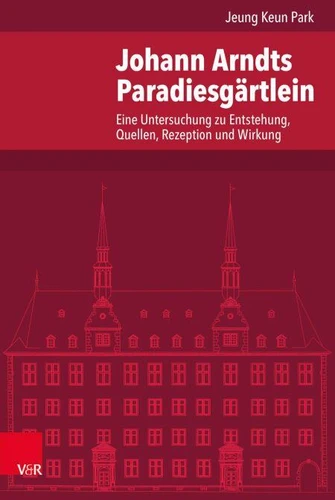Johann Arndts Paradiesgärtlein. Eine Untersuchung zu Entstehung, Quellen, Rezeption und Wirkung
Par : ,Formats :
Disponible dans votre compte client Decitre ou Furet du Nord dès validation de votre commande. Le format PDF est :
- Compatible avec une lecture sur My Vivlio (smartphone, tablette, ordinateur)
- Compatible avec une lecture sur liseuses Vivlio
- Pour les liseuses autres que Vivlio, vous devez utiliser le logiciel Adobe Digital Edition. Non compatible avec la lecture sur les liseuses Kindle, Remarkable et Sony
 , qui est-ce ?
, qui est-ce ?Notre partenaire de plateforme de lecture numérique où vous retrouverez l'ensemble de vos ebooks gratuitement
Pour en savoir plus sur nos ebooks, consultez notre aide en ligne ici
- Nombre de pages269
- FormatPDF
- ISBN978-3-647-57088-4
- EAN9783647570884
- Date de parution13/08/2018
- Protection num.pas de protection
- Taille3 Mo
- Infos supplémentairespdf
- ÉditeurVandenhoeck & Ruprecht
Résumé
Johann Arndt (1555-1621) was an influential figure in early modern piety and pietism in Germany. This volume focuses on Arndt's broadly neglected prayer book "Garden of Paradise" (Paradiesgärtlein). Park studies Arndt and his position in Lutheranism is his reception of medieval-mystical and extra-Reformation sources, whose thoughts Arndt allowed to flow into the Protestantism of the 17th Century. Influences on the "True Christianity" (Wahres Christentum, 1605-1610) are Johann Tauler, Theologia Germanica, Angela of Foligno, The Imitation of Christ, Valentin Weigel and Paracelsus and above all the materials of the (pseudo-) Bernard of Clairvaux on the "Garden of Paradise" (Paradiesgärtlein, 1612).
Johann Arndt (1555-1621) was an influential figure in early modern piety and pietism in Germany. This volume focuses on Arndt's broadly neglected prayer book "Garden of Paradise" (Paradiesgärtlein). Park studies Arndt and his position in Lutheranism is his reception of medieval-mystical and extra-Reformation sources, whose thoughts Arndt allowed to flow into the Protestantism of the 17th Century. Influences on the "True Christianity" (Wahres Christentum, 1605-1610) are Johann Tauler, Theologia Germanica, Angela of Foligno, The Imitation of Christ, Valentin Weigel and Paracelsus and above all the materials of the (pseudo-) Bernard of Clairvaux on the "Garden of Paradise" (Paradiesgärtlein, 1612).



